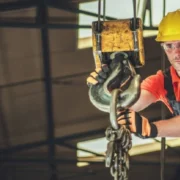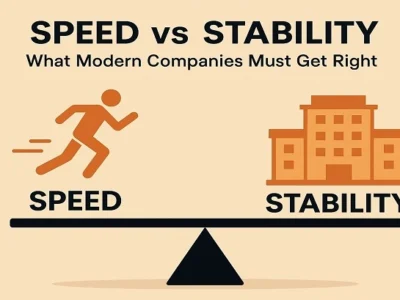Do you feel like everything seems fine, yet something feels off deep down? It is hard to spot high-functioning addiction because it hides behind success. When is it time to take a step back and say there’s a problem? Recognizing the subtle signs and making the choice to act are the first steps to breaking the circle of high-functioning addiction. People’s lives change when they stay aware and ask for help. Therefore, start now and stay informed to take that first step toward change.
What Is High-Functioning Addiction?
A high-functioning addict often tries to look good. They are good at their jobs, keep up with their relationships, and take care of their duties. This skill to hide addiction tricks people, usually themselves. They might use drugs, alcohol, or bad habits to deal with worry while acting like they’re not affected. Data shows that about 20% of people with alcohol use disorders are highly functioning, with steady jobs, good pay, and completed education.
But the real danger is in the idea that you are in charge. Others may not notice anything out of the ordinary, but the user feels more and more anxious, guilty, or dependent. The stress grows below the surface, hurting health and mental well-being. The first step toward long-term recovery is to become aware of these hidden fights.
Identify the Signs
Paying attention to small trends is needed to spot high-functioning addiction. Someone might be great at their job but be worn out from putting on a fake front. Physical signs, like feeling tired all the time or having mood swings, often point to bigger problems. They might say that drinking or using drugs is “just a way to deal with stress.”
Denial, anger, and avoiding personal problems are all emotional signs. You might see a dependence on routines in the way you act, like always needing alcohol to unwind. Initially, these signs are small, but they add up over time. Dealing with them early stops damage from happening in the long run and allows for a full recovery.
Why Is High-Functioning Addiction Dangerous?
High-functioning addiction looks like it doesn’t pose any major risks, but it does. People who are addicted are hurting their health even when they don’t seem unhealthy. For example, alcohol quietly hurts the liver. Drugs are bad for the nervous system, heart, and lungs. Maintaining appearances causes long-term worry that can lead to burnout and mental health problems.
Relationships also get worse. When someone is addicted, they often shut themselves off mentally and can’t connect with others in a real way. As an addiction gets worse, money or legal problems start to show up. Every risk adds up until the whole thing falls apart, often without any notice. People can save lives by breaking free before this point.

Person looking at a laptop
The Role of Therapy and Rehabilitation in Breaking the Cycle of High-Functioning Addiction
Therapy is an important part of getting better. Why does it help so many? With professional help, you can find out what’s causing your problem. It helps people deal with feelings or thoughts that make them want to use drugs.
Opioids, which are used to treat chronic pain, stimulants, which are used to get energy or focus, and even booze, which is often seen as a stress reliever, can all lead to addiction. People from all over the world are affected by these drugs, but high-functioning addicts tend to hide their use because they have jobs or social obligations.
For those grappling with opioids or other addictive substances, a well-designed opioid rehab plan provides a structured approach to recovery, addressing both physical and emotional obstacles. People can talk about their problems in a safe way and work toward real change during sessions, which can be one-on-one or in groups.

People in a therapy session
How Can You Break the Cycle?
Recognizing the problem is the first step in taking action. Being honest and brave are needed for this step, because doubt holds many people back. Getting help from trusted friends or professionals makes this process easier. Once the problem is known, the attention shifts to how to fix it.
Next, expert evaluations make it clear how bad the addiction really is. Therapists or addiction experts can help you make a plan for your own recovery. Therapy is very important for getting to the bottom of problems and learning better ways to deal with them. It’s also important to build support services. Getting support from family and friends or joining rehab groups can help you stay motivated.
Work, health, and personal life all need to be balanced while you’re recovering. It’s important to include structured practices and self-care. Engaging in the best addiction recovery activities, like exercise, art, or mindfulness, nurtures emotional strength. Each small step reinforces progress.
Overcome Obstacles to Seeking Help
A lot of people are afraid to ask for help, even when they know they need it. Most of the time, fear of being judged gets in the way. They may be worried about how other people see them or think they should handle things on their own. Some are embarrassed because they think their success should protect them from addiction. Others might not trust care or be afraid of the changes that will be needed for recovery.
Not taking action can also be caused by worries about money or not knowing where to begin. Without help, figuring out what to do can be hard. Still, getting help from a professional is an important step in dealing with high-functioning addiction.
Alcohol and drug treatment programs provide a structured environment and personalized care. At Little Creek Recovery, a premier rehab facility with evidence-based treatment programs, this foundation is strengthened through therapeutic and 12-step models that integrate recovery with a focus on the spiritual paradigm. Taking that first step opens the door to healing and long-term change.
Build a New Lifestyle Post-Recovery
Build a better base for your life after addiction. Without big changes, temptations come back fast. Working, taking care of yourself, and spending time with others should all be balanced in your new habits. Activities like exercise or sports can help you stop doing bad things. A sense of control and trust can be restored by doing even the smallest things every day.
Have you imagined what makes you truly happy? Finding new interests, like art, hiking, or writing, can help. Having these good outlets helps you feel stronger emotionally. Less relapses happen when healthy choices are a normal part of life. Every move separates us from old habits.
One of the best ways to stay grounded involves the power of community. Support groups offer safe spaces to connect with people who share the same goals. Their shared wisdom helps others grow stronger, too. Community fosters accountability, which strengthens recovery.
Support Systems Really Matter
Support networks help people stay clean for a long time and break the loop of high-functioning addiction. How does it work? Family and friends can help you feel better. Their support helps me when things are hard. Loved ones help people remember why they decided to get better. They also celebrate important events that show how important staying sober is.
For some, the most important thing is skilled help. Therapists and counselors help people deal with problems that come up out of the blue. Recovery groups bring together people who have been addicted themselves. These connections help people trust each other and feel less alone.
How strong is your group of friends and family? When you reach out to new people, even if it feels small, it opens doors. People who have active support networks feel better about themselves and stay on track.

People holding hands
Embrace Change, Reclaim Your Life
What is stopping you from changing? Stopping habits is not enough to break the cycle of high-functioning addiction. It gives you a way to freedom, health, and a new sense of meaning. Your future changes with every step you take forward. Take charge today. Get help and take back the life you deserve.










Comments